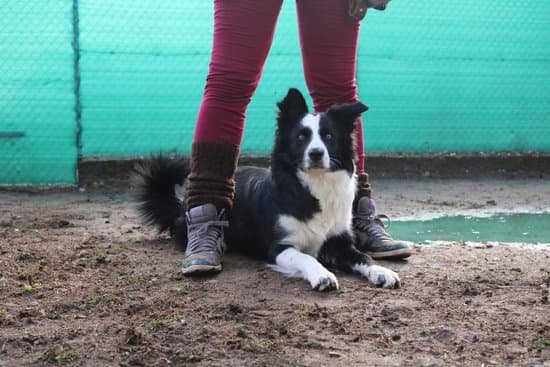Are you looking to improve your quality of life with a furry, four-legged companion that is trained to assist you in daily tasks and provide invaluable support? If so, where can you buy a trained service dog that suits your specific needs and lifestyle?
Trained service dogs play an essential role in the lives of individuals living with disabilities, providing assistance, companionship, and independence. In this article, we will explore the process of acquiring a trained service dog and the different options available for purchase.
Trained service dogs are highly skilled animals that are specifically trained to assist individuals with disabilities in performing various tasks. These remarkable animals play a crucial role in empowering their handlers and improving their day-to-day lives. From guiding the visually impaired to alerting those who are deaf or hard of hearing, service dogs perform a wide range of functions that greatly enhance the quality of life for their handlers.
When it comes to training, service dogs undergo rigorous programs designed to teach them specific skills and behaviors tailored to meet the unique needs of their future handlers. This extensive training equips them with the ability to perform tasks such as retrieving dropped items, opening doors, providing balance support, and even alerting their handlers to impending medical issues. The process ensures that they are well-prepared to provide invaluable assistance and support once they are placed with their new owners.
The next section will focus on exploring the different options available for purchasing a trained service dog, whether it be from breeders, shelters or specialized service dog organizations. We will also discuss important considerations such as cost and time investment involved in acquiring a trained service dog. So if you’re considering adding a trained service dog into your life, read on to discover where you can find your perfect match.
The Process of Training a Service Dog
In-Depth Look at the Training Process
Training a service dog is a rigorous and comprehensive process that requires patience, consistency, and specialized knowledge. The training process typically begins when the dog is still a puppy, as early socialization and obedience training are crucial for developing the foundational skills needed for service work.
As the dog matures, it undergoes specialized training to perform specific tasks and behaviors that are tailored to the individual needs of its future handler. This can include tasks such as guiding individuals with visual impairments, alerting to medical conditions, providing mobility support, or even assisting with psychiatric disabilities.
Specific Skills and Behaviors
Service dogs are trained to perform a wide range of tasks and behaviors to assist individuals with disabilities in their daily lives. These can include retrieving objects, opening doors, turning on lights, providing balance support, or even offering emotional support during times of distress.
In addition to these practical tasks, service dogs also undergo extensive obedience training to ensure they are well-behaved and responsive in various environments. This includes being able to remain calm and focused in crowded public spaces, ignore distractions such as other animals or food, and respond reliably to commands from their handlers.
Cost and Time Investment
The process of training a service dog is both time-consuming and costly. It can take up to two years for a service dog to complete its training before it is ready to be placed with an individual in need. During this time, the dog receives specialized instruction from professional trainers who are experienced in working with service animals.
As a result, the cost of purchasing a trained service dog can vary widely depending on factors such as the breed of the dog, the specific tasks it has been trained for, and the organization or individual providing the training. Aspiring owners should be prepared for this investment of time and resources when considering acquiring a trained service dog.
In summary.
Where Can You Buy a Trained Service Dog
Trained service dogs can be life-changing for individuals with disabilities, providing invaluable support and assistance in their daily lives. These specially trained dogs are capable of performing a wide range of tasks, such as guiding the visually impaired, alerting to medical emergencies, and providing emotional support. The training process for service dogs is extensive and requires dedication from both the dog and the trainer.
When considering where to buy a trained service dog, there are several options available. One option is purchasing from breeders who specialize in breeding and training service dogs. Another option is adopting a trained service dog from shelters or rescue organizations that specifically focus on placing service animals. Additionally, there are specialized service dog organizations that train and match service dogs with individuals based on their specific needs and requirements.
It’s important to consider the cost and time investment involved in acquiring a trained service dog. Purchasing from breeders or specialized service dog organizations can be costly, often ranging from several thousand to tens of thousands of dollars.
The process of obtaining a trained service dog can also take time, as there may be waitlists or specific criteria for matching individuals with suitable dogs. Reputable sources typically have thorough application processes to ensure that their service dogs are matched with the right individuals.
| Source | Cost Range |
|---|---|
| Breeders | $5,000 – $25,000 |
| Shelters/Rescue Organizations | $0 – $2,500 (adoption fees) |
| Specialized Service Dog Organizations | $10,000 – $50,000 |
The Importance of Choosing a Reputable Source
When considering where to buy a trained service dog, it is crucial to prioritize finding a reputable and ethical source. There are several options available for purchasing a trained service dog, including breeders, shelters, or specialized service dog organizations. Each option has its own considerations and it’s important to choose the one that best fits the individual’s needs and circumstances.
One option for acquiring a trained service dog is through breeders who specifically train dogs for service purposes. These breeders often have a thorough understanding of the specific skills and behaviors required for service tasks. However, it’s essential to thoroughly research the breeder’s reputation, as there have been some cases of unethical breeding practices in the industry.
Another option is to adopt a trained service dog from a shelter or rescue organization. Many dogs in shelters have received some level of training and may be suitable candidates for becoming service dogs. Adopting from a shelter not only provides a home for a dog in need but also gives individuals an opportunity to work with professionals who can assess their needs and match them with the right dog.
Specialized service dog organizations are another avenue for acquiring a trained service dog. These organizations train dogs specifically for service work and often work closely with individuals to find the right match. While this option may come with higher costs, it can provide peace of mind knowing that the dog has been thoroughly trained and evaluated by professionals.
| Source | Considerations |
|---|---|
| Breeders | Thorough research on breeder reputation needed; understanding of specific skills required |
| Shelters/Rescues | Potentially lower cost; opportunity to give home to dogs in need; professional assessment possible |
| Specialized Service Dog Organizations | Thorough training and evaluation by professionals; higher cost involved |
Ensuring the Right Fit
When looking to purchase a trained service dog, it is crucial to ensure that the dog is the right fit for your specific needs and lifestyle. Here are some factors to consider when determining if a trained service dog is the right fit for you:
- Individual Needs: Consider your individual needs and requirements when it comes to a service dog. Whether you need assistance with mobility, medical alerts, or emotional support, it’s important to find a service dog that is trained in the specific tasks that will benefit you the most.
- Temperament: The temperament of a service dog is also an important factor to consider. Different breeds and individual dogs may have different temperaments, energy levels, and personalities. It’s essential to find a service dog whose temperament aligns with your lifestyle and living situation.
- Lifestyle Compatibility: Take into account your daily routine, living environment, and activity level. A service dog should seamlessly integrate into your life and be able to keep up with your daily activities.
Once you have identified your specific needs and the kind of service dog that would be the best fit for you, it’s important to work with a reputable source where you can buy a trained service dog.
It’s crucial to do thorough research on potential sources of trained service dogs including breeders, shelters, or specialized service dog organizations. Each option has its pros and cons in terms of cost, time investment, and ethical considerations.
To ensure the right fit for both you and the dog, take your time to thoroughly evaluate potential sources and ask the necessary questions before making a decision on where to acquire a trained service dog.
Preparing for Life With a Trained Service Dog
Once you have made the decision to acquire a trained service dog, it is important to start preparing for life with your new companion. There are several steps you can take to ensure a smooth transition and successful partnership with your service dog. Here are some key things to consider when preparing for life with a trained service dog:
- Provide a safe and comfortable living environment: It is essential to create a safe and comfortable living environment for your service dog. This includes providing a designated area for rest and relaxation, as well as ensuring that your home is free from hazards that could pose a risk to your dog’s well-being.
- Invest in proper equipment and supplies: From specialized harnesses and leashes to grooming tools and feeding supplies, it is important to invest in the necessary equipment and supplies for your service dog. This may also include items such as identification tags, vests, and patches that indicate your dog’s working status.
- Establish routines and training protocols: Consistency is key when it comes to integrating a service dog into your daily life. Establishing clear routines and training protocols will help both you and your dog adjust to the new dynamic. This may involve setting structured times for feeding, exercise, rest, and training sessions.
In addition to these practical considerations, it is important to mentally prepare for the responsibilities of caring for a trained service dog. This includes being prepared for the emotional investment involved in forming a strong bond with your canine partner, as well as being ready to advocate for their needs in various social or public settings.
Ultimately, preparing for life with a trained service dog requires patience, commitment, and dedication. By taking the time to set up the appropriate environment, invest in necessary equipment, establish routines and training protocols, as well as mentally prepare for the responsibilities ahead; you will be better equipped to welcome your new companion into your life with confidence.
For those wondering where can you buy a trained service dog? There are numerous options available that provide access to highly-trained service dogs suitable for different individuals’ needs. Whether from breeders who specialize in producing high-quality working dogs or from reputable service dog organizations dedicated to providing assistance animals – finding the right fit requires thorough research.
Legal and Ethical Considerations
When considering purchasing a trained service dog, there are important legal and ethical considerations that potential owners should keep in mind. Before making the decision to acquire a service dog, it is essential to understand the rights and responsibilities associated with owning one. Additionally, the ethical treatment and care of service dogs is paramount in ensuring their well-being and ability to perform their duties effectively.
Legal Rights and Responsibilities
One of the most crucial aspects of owning a trained service dog is understanding the legal rights and responsibilities that come with it. In the United States, individuals with disabilities are protected under the Americans with Disabilities Act (ADA), which allows them to have a service dog accompany them in public places.
It is important for owners to educate themselves on their rights regarding access to public spaces, housing accommodations, and transportation services with their service dog. On the other hand, owners also have the responsibility to ensure that their service dog is well-behaved and does not pose a threat to others while in public settings.
Ethical Considerations
Ethical considerations in owning a trained service dog revolve around proper care and treatment. Service dogs undergo rigorous training to perform various tasks and provide support to individuals with disabilities.
Therefore, it is essential for owners to provide adequate care for their service dogs, including regular veterinary check-ups, proper nutrition, and opportunities for rest and relaxation. Ethical treatment also extends to respecting the boundaries of the service dog – they are working animals and should not be distracted or approached without permission from their handler.
Choosing an Ethical Source
When purchasing a trained service dog, it is vital to choose an ethical source that prioritizes the well-being of both the dogs and their future owners. Researching potential breeders, shelters, or specialized service dog organizations is crucial in ensuring that the source complies with ethical standards for breeding practices, training methods, and care for the dogs.
By selecting an ethical source for obtaining a trained service dog, individuals can contribute to maintaining high standards within the industry while also advocating for animal welfare.
Understanding legal rights, responsibilities related to owning a trained service dog as well as upholding ethical considerations when acquiring one are fundamental aspects of being a responsible owner. By doing so, individuals can ensure that they are prepared for life with a trained service dog while promoting respect for these dedicated animals as valuable companions in supporting those with disabilities.
Conclusion
In conclusion, acquiring a trained service dog is a significant decision that requires careful consideration and research. The importance of these remarkable animals cannot be overstated, as they provide invaluable assistance and companionship to individuals with various disabilities and medical conditions. From performing specific tasks to providing emotional support, trained service dogs make a profound difference in the lives of their handlers.
When it comes to purchasing a trained service dog, there are several options to consider. Whether it’s buying from breeders, adopting from shelters, or acquiring from specialized service dog organizations, it’s essential to thoroughly assess each option and determine which best aligns with your needs and preferences. Additionally, evaluating the reputation and ethics of potential sources is crucial in ensuring the well-being and quality of the service dog you acquire.
Ultimately, owning a trained service dog is not just about the acquisition process but also about preparing for life with a furry companion. It entails understanding the legal rights and responsibilities associated with owning a service dog as well as being committed to providing proper care and treatment. With the right preparation and mindset, welcoming a trained service dog into your life can be an incredibly rewarding experience that enhances daily living for both handler and canine partner.
Frequently Asked Questions
How Do I Get a Service Dog in Kansas?
To get a service dog in Kansas, you first need to determine if you qualify for one. Then, you’ll need to find a reputable organization that trains and places service dogs. After completing the necessary application and approval process, you can undergo training with your new service dog.
How to Get a Service Dog in San Antonio?
Getting a service dog in San Antonio involves similar steps as in other locations. First, determine if you meet the criteria for obtaining a service dog. Then, research and connect with organizations that specialize in training and placing service dogs. Once accepted into a program, you would undergo training alongside your new service animal.
What Are the Requirements for a Service Dog in California?
The requirements for obtaining a service dog in California typically involve having a diagnosed physical or mental disability that substantially limits one or more major life activities. Additionally, individuals seeking a service dog may need to complete an application process and demonstrate the ability to care for and work with a service animal effectively.

Welcome to the blog! I am a professional dog trainer and have been working with dogs for many years. In this blog, I will be discussing various topics related to dog training, including tips, tricks, and advice. I hope you find this information helpful and informative. Thanks for reading!





